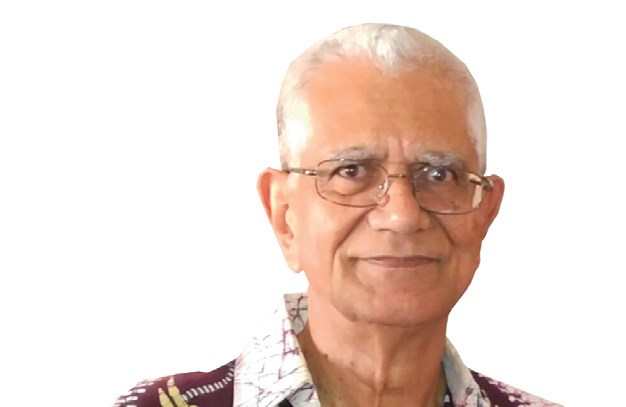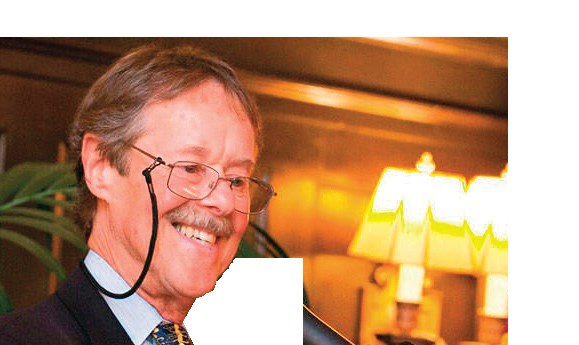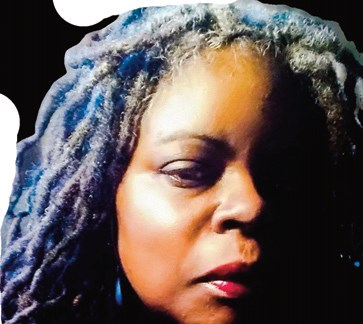Roberto Pineto pleaded guilty to taking part in a scheme to sell fake IDs which some Russians used to interfere in the 2016 presidential election and he was sentenced to six months in prison. But a black woman, Crystal Mason, was jailed for five years for illegally voting in Texas through a misunderstanding.
And while President Donald Trump was persuaded to pardon Alice Marie Johnson, who was serving a life sentence for non-violent drug offenses, and the late boxing great Jack Johnson, jailed for taking his white girlfriend across state lines, he has not extended clemency to Mason.
Among those whom Trump has pardoned is Dinesh DeSouza, already given a sweetheart sentence of five years’ probation and a $30,000 fine for using phantom donors to contribute to a New York Republican candidate. Others include former Maricopa County, Arizona, sheriff Joe Arpaio, pardoned even before he was sentenced, and brothers Dwight Hammond and Steven Hammond, serving five-year sentences for arson. Sholom Rubashkin, serving 27 years for bank fraud, received a commutation.
This use of the power to pardon is yet another cautionary tale on the importance of voting.
For the mid-term elections on Nov. 6, Democratic Senator Bill Nelson is facing outgoing governor Rick Scott in his re-election bid. Sending Scott to join fellow Republican Marco Rubio in the Senate will almost certainly make it impossible for Democrats to take control of the upper chamber, with consequences including composition of the U.S. Supreme Court and the fate of the Affordable Care Act – Obamacare.
The choice of a successor for Scott is between Democrat Andrew Gillum, who would become Florida’s first African American governor, and Republican Ron DeSantis, a mini-Trump writ large. Some of their policy differences, according The Orlando Sentinel’s Gray Rohrer, include the following: Gillum would hike the corporate income tax from 5.5 percent to 7.75 percent and invest the estimated $1 billion windfall in K-12 schools and boost teachers’ starting salaries to $50,000 annually. He would also push for Medicaid expansion and a $15 minimum wage and welcome immigrants, including the undocumented.
DeSantis would crack down on cities that shelter undocumented immigrations – although there are none in the state. He would expand voucher programs and implement an “80 percent rule” mandating that $4 of every $5 spent on K-12 schools go to the classroom and not administration. He would reduce regulations and business taxes and boost vocational training, ban fracking, and tackle environmental concerns.
Also, Gillum favors an assault weapons sales ban, while DeSantis supports open carry of guns in public and on college campuses. And DeSantis supports the standyour-ground law while Gillum wants it repealed.
Another notable difference is the way they conduct their campaigns, with DeSantis using race-tinged rhetoric, starting the day after the primary voting. He is also trying to use scare tactics, such as calling Gillum a “socialist” and making the laughable claim that Gillum would turn Florida into a Venezuela-type economic basket case.
The new governor will appoint three members to the state Supreme Court. Fred Lewis, Barbara Pariente and Peggy Quince, who are retiring, are part of the “liberal” majority. If DeSantis gets to name their successors, the court will turn “conservative.”
However, it is almost impossible to predict the outcome of the election. Registered voters total 13 million of Florida’s 21 million residents, comprising 37 percent Democrats, 35 percent Republicans and 28 percent independents. Republican turnout in 2016 was 81 percent and, for Democrats, 74 percent. Republicans won 22 seats in the Senate, compared to 16 for Democrats, and 75 seats in the House, compared to 41 for Democrats. The results, therefore, were heavily influenced by unaffiliated voters. Still, Democrats could take some comfort from the fact that Trump – whose support gave DeSantis victory in the primary — won Florida by a mere 1.2 percent over Democrat Hillary Clinton, so the independent vote is not monolithic.
And that was before Trump’s subsequent anti-immigration campaign and the influx of between 50,000 and 75,000 Puerto Ricans following last year’s Hurricane Maria, making for an estimated total of 1.2 million in the state -and they can vote. It is possible that Trump’s immigration policies and rhetoric will turn Latinos, generally, against him and Puerto Ricans, in particular, because of the cavalier attitude which he has shown to the storm’s devastation.
But every vote will count, especially if the independents are divided. African Americans, of course, have a particular incentive to vote because Gillum is on the ballot and, also, because Amendment 4 provides an opportunity to restore the civil rights of a million offenders who have served their time; more than 21 percent of black Floridians eligible to vote are prevented from doing so by this disenfranchisement that dates back to at least Reconstruction.













No Comment